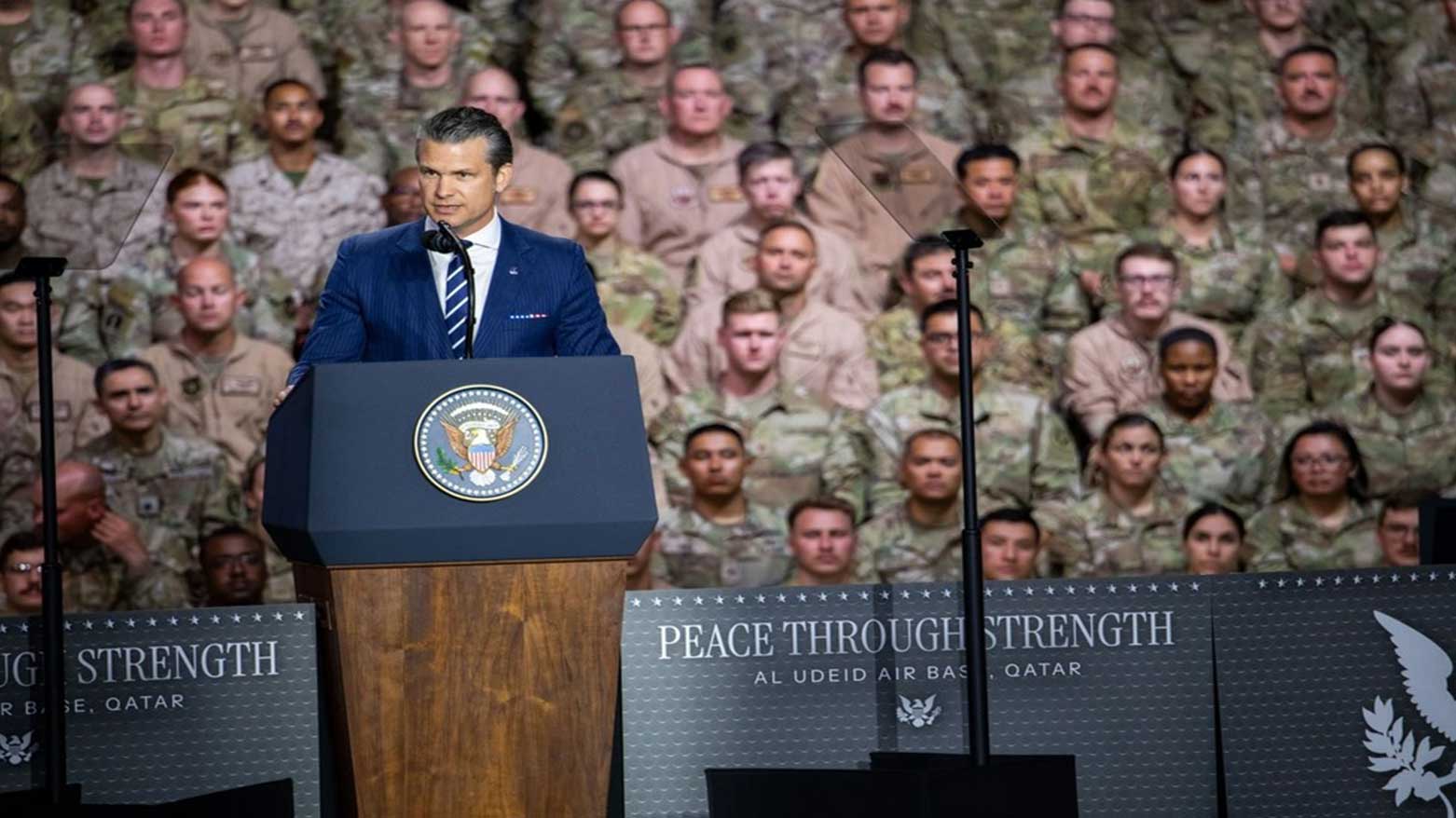US, UAE Announce ‘Major Defense Partnership’
The reorientation of US policy has benefitted the Kurdistan Region, which maintains warm political and economic ties with countries like the UAE.

WASHINGTON DC, United States (Kurdistan 24) — The U.S. announced a significant new defense relationship with the United Arab Emirates (UAE), as it released a statement describing the letter of intent (LOI), signed by Pete Hegseth, U.S. Secretary of Defense, and his UAE counterpart, Mohammed Mubarak Al Mazrouei, on Friday.
Hegseth accompanied U.S. President Donald Trump on his tour of the Middle East last week, including to the UAE. During Trump’s visit to Saudi Arabia, Qatar, and the Emirates, Trump announced the signing of major new contracts in each country, including the UAE.
Read More: Trump Visits Middle East—Focused on Economic, Rather Than Security Issues
Indeed, the Trump administration has now concluded $1.4 billion in military sales with the UAE.
New Defense Partnership between the U.S. and the UAE
In a joint press statement, the U.S. and UAE explained that in “a formal ceremony at the Ministry of Defense Headquarters in Abu Dhabi,” Mazrouei and Hegseth signed an LOI on Friday “to establish a comprehensive U.S.-UAE Major Defense Partnership.”
The LOI, as the joint statement explained, “represents a shared commitment to develop a structured roadmap that will guide enhanced military-to-military cooperation, joint capability development, and long-term defense alignment between the two nations.”
Subsequently, as the Pentagon announced in a statement issued on Monday, the two parties signed a Memorandum of Understanding (MOU) “to strengthen defense cooperation and enhance mutual capacity for finding solutions to military requirements by developing and accessing cutting-edge technologies through non-traditional processes.”
The MOU was signed between the Pentagon’s Defense Innovation Unit (DIU) and the UAE’s Tawazun Council, as the Pentagon statement explained.
The Tawazun Council is the Emirates’ defense and security acquisitions authority.
“This collaboration will deepen ties in defense innovation, facilitate joint capability development, and expand industrial and investment partnerships across both defense ecosystems—aligning with strategic efforts and investments outlined during the President’s trip to the region,” the Pentagon statement said.
On Trump’s Middle East tour, in which he was accompanied by the heads of major U.S. technology companies, both Saudi Arabia and the UAE expressed a strong interest in developing Artificial Intelligence (AI.)
In the UAE, as Axios reported on Sunday, “Trump and Emirati President Mohammed bin Zayed said the two countries will partner to help build the largest AI data center outside the U.S. in Abu Dhabi.”
Although the Pentagon statement did not mention AI cooperation specifically, it seemed that AI would likely be included.
“The MOU supports DIU’s strategic efforts to deepen international partnerships and quickly evolve the instruments of defense innovations and acquisition in concert with the commercial defense sector globally,” the Pentagon statement said.
“By building a strong international community of defense innovation entities among allies and partners,” the statement continued, the Defense Department “is enhancing best practices for harnessing and sharing the best commercially derived technologies” through “mission-driven collaboration among the many nations that rely on that system globally.”
The expanded U.S. defense partnership with the UAE is part of a broader realignment of U.S. policy in the Middle East under Donald Trump. It involves closer ties with the Arab Gulf states; a tougher position toward Iran; and an increased breach with Israel, as the U.S. pursues its interests in the region, including reaching a ceasefire with the Houthis in Yemen, independent of Israel.
The reorientation of U.S. policy has been to the benefit of the Kurdistan Region, which maintains warm political and economic ties with countries like the UAE.
Read More: KRG Strengthens Economic Ties with UAE, 200 Emirati Companies Contribute Over $2 Billion in Trade
Indeed, Masrour Barzani, Prime Minister of the Kurdistan Regional Government, is currently in Washington and will meet with U.S. Secretary of State Marco Rubio on Friday.
On Monday, under the auspices of the U.S. Chamber of Commerce in Washington, the KRG signed two major agreements with U.S. companies for energy exploitation.
Read More: PM Barzani Announces Signing Two Major Energy Deals with US Companies